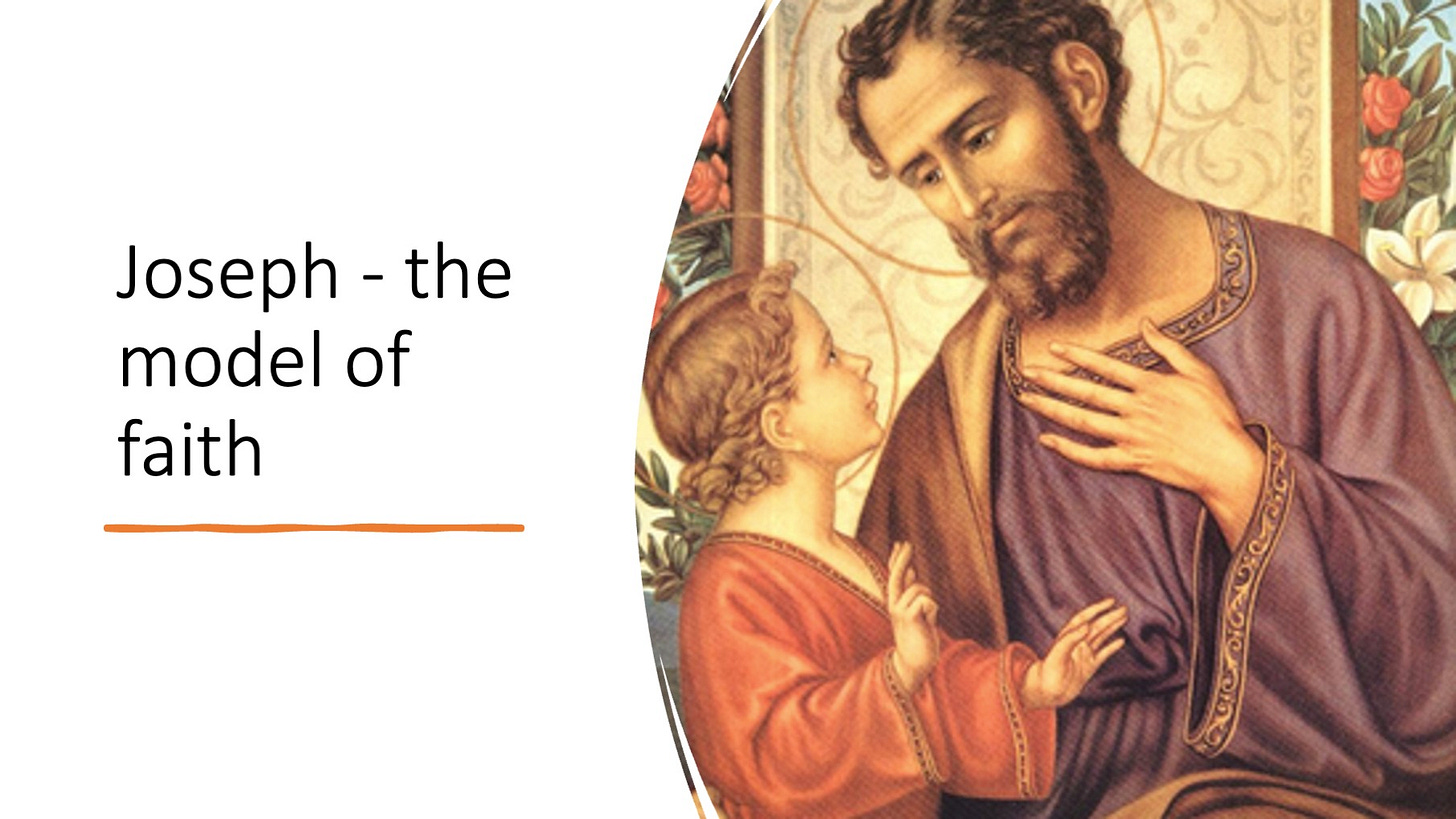2 Samuel 7:4-5a, 12-14a, 16; Romans 4:13, 16-18, 22; Matthew 1:16, 18-21, 24a
David had a plan to build a house for the Lord. He thought it unthinkable that he lived in a beautiful palace, "while the Ark of the Lord" stayed in a tent (2 Sam 7:2). He expressed this desire to Nathan who encouraged him to do it, but then the Lord intervened and changed their plans. First of all, David - despite being the best king of Israel - was not worthy to build a house for the Lord. Why? Because he was a man of war and shed much blood (1 Chron 28:3). It would be his son, Solomon, whose name signifies "peace" that built a temple for the Lord. But the promise about an heir whose "royal throne" God would establish forever and who would build a house for God's name could not refer to Solomon. Someone greater than Solomon had to come to do it.
The main character of today’s Gospel carries the name of his famous ancestor. Joseph of the book of Genesis is known for his dreams and saving his family from famine (see Gen 50:19–21). In the Gospel of Matthew, Joseph had four dreams (1:20; 2:12,13,19) and all of them aimed at protecting the child of Mary. Thus, Joseph of Matthew re-enacts the role of his ancestor but on the much higher plain: he is the protector of the Saviour of the world. But before it took place, one issue had to be solved first, namely that Mary, espoused to Joseph was found with child (Matt 1:18).
Most of the commentaries indicate that under Jewish law the betrothal was legally binding: Joseph and Mary were legally a married couple. But Jewish tradition established a period of waiting followed the engagement before the couple comes to live together. Unfaithfulness on the part of a young bride during that period was unacceptable (see Deut 22:23–24). However, during the time of Jesus death penalty for unfaithfulness was seldom, if ever, administered. Instead, there were two other options:
1. A woman could be exposed to a public and shameful process of divorce. In this case, she would be ostracised by the entire community.
2. Another option was a private divorce. In this case, a husband needed only to write a certificate of divorce and hand it to his wife in the presence of two witnesses. That was the option that Joseph was about to take, when the angel of God explained to him what happened: "it is through the Holy Spirit that this child has been conceived in her" (Matt 1:20).
Trust is Joseph’s reaction to the angelic message. Matthew presents Joseph as a model of a believer. As in the Gospel of Luke, Mary said to the angel, “Let it be to me according to your word” (Luke 1:38), so here Joseph’s action of doing as the angel had told him carries the same meaning. Israel of old traces its origin to Abraham and his unwavering faith in God’s promises: "He believed, hoping against hope" (Rom 4:18). According to Matthew, the new Israel at its beginning has Joseph, an example of trust and righteousness. Abraham’s faith shone at the dawn of the nation of Israel, the faith of Joseph is shining at the dawn of the new Israel - the Church of Christ.
Saint Joseph is presented as a model for us. Do we have similar faith in God? The word of God is recorded for us in the Bible and proclaimed to us in the Church during the Eucharistic celebration. Are we willing to put our trust in it? Can we say what Mary said and Joseph expressed by his action: Let it be to me as you said?
At the heart of biblical message is obedience to God. It is not enough to believe that God exists, to have so-called intellectual faith. True faith expresses itself in obedience to God's Word and Jospeh perfectly exemplifies for us this biblical truth.
St. Joseph, pray for us.




